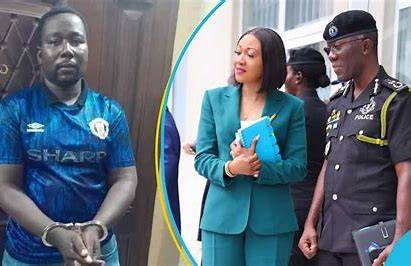Mohammed Ibrahim, a prominent member of the National Democratic Congress (NDC) and the Sowutuom Branch Organiser, has been sentenced to 10 years in prison for inciting violence and spreading false information. The sentence was handed down by Judge Evelyn E. Asamoah, following a trial that concluded with a guilty verdict on multiple charges.
Ibrahim, who is also known as the leader of a group called “Kanawu†(meaning “Speak and Dieâ€), was arrested on September 10, 2024, after a controversial video of him making inflammatory statements went viral on social media. In the video, Ibrahim alleged that the Ghana Police Service in the Ashanti Region was recruiting fake police officers with the intent of killing citizens during the upcoming December 7, 2024, General Elections. His claims sparked widespread concern and panic, as he suggested that these fake officers were part of a conspiracy to rig the elections and create chaos.
In the same video, Ibrahim threatened to unleash violence if the elections were disrupted and boldly claimed that he knew the residence of Henry Quartey, the Minister for the Interior. He even went as far as to say that, in the event of a conflict, he and his group would take action against the minister. His words were perceived as a direct incitement to violence, further intensifying fears of election-related unrest.
Ibrahim was charged with three counts: Publication of False News with Intent to Cause Fear and Alarm, Threat of Harm, and Offensive Conduct Likely to Breach the Peace. Despite pleading not guilty to all charges, the court found him guilty on all counts. The judge sentenced him to three years in prison for the publication of false news and four years for the threats and offensive conduct, bringing his total sentence to 10 years.
During the trial, which began on September 13, 2024, the prosecution presented three witnesses and submitted 10 exhibits to support the case against Ibrahim. His defense attorney, Francis Xavier Sosu, had requested an expedited hearing, which the court granted. The case has garnered significant attention, as it underscores the seriousness with which authorities are addressing issues of electoral violence and misinformation, particularly as Ghana approaches its 2024 elections.
Ibrahim’s sentencing serves as a warning to others who may seek to incite violence or spread falsehoods that could undermine the integrity of the election process.



No comments yet
Be the first to share your thoughts!